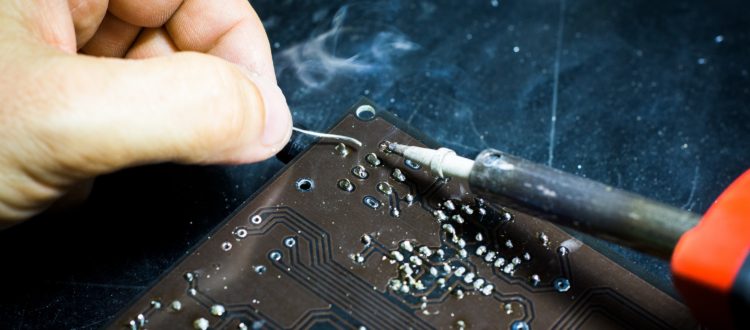199

According to my firm’s database, the number of PCB companies in North America is now down to 199. This is a psychologically significant number for the industry. To clarify how we count companies, we are counting only PCB fabricators (excluding pure importers or assembly shops), and each company counts as one (e.g., TTM counts as one company, APCT counts as one company, etc.).
The PCB company count is down from over 1,500 In 2000 and around 300 in 2010. The actual count today is probably lower than 199 by 15–20 companies, as it is hard to keep track of smaller companies. It seems like once a month, we hear about another shop that has closed, is about to close, or has decided to cease manufacturing to focus on brokering. Conversely, very few new PCB companies have opened since 2000. Despite the decrease in the number of PCB companies, the percentage of boards made In North America remains about the same as in 2010 because the large companies keep getting larger.
Fewer shops will mean more scarcity, but it also means that there will be fewer prime buyers. TTM and others do not really need to manage new locations, so they will increasingly look to consolidations in which the seller’s business is moved into the buyer’s. Companies under $50 million in revenue may acquire or merge with smaller companies, but they often do not have the capital or management bandwidth to complete many acquisitions.
Customers will have fewer choices, but the larger shops (around $50 million+ in revenue) will offer more services and will have top-line equipment. The larger shops will attract the best talent and will increasingly be concentrated in a few geographical locations.
Half of North American PCB companies are under $5 million in revenue, about 50 are between $5 and $10 million, approximately 25 are between $10 and $20 million, and 25 are over $20 million. More of the smaller shops will close or focus more on brokering and importing. We count around 30 active board brokers in North America (this number is probably too small, and it seems that a few new brokers open up each year). Frankly, we predict that half of the companies under $5 million in revenue will be acquired or will close in the next decade. It will be increasingly hard to afford the newest equipment for these companies and attract good talent, and customers will continue to demand improvement in quality and technology.
The average age of most owners is elevated, so many will look to sell in the coming decade. A few have family in the business or can hand it over to management, but the vast majority do not have a successor in mind. The coming supply of board shops on the market will generally depress valuations. However, on the other hand, more private equity and public company money will come into the market, which will help support valuations for companies over $10 million in revenue or so. Mainland Chinese buyers are mostly shut out from acquiring in the U.S. for now due to security/CFIUS concerns, but we may see more buyers from other countries. The gap between smaller and larger company valuations will most likely increase.
Strategically, it is important to be prepared, as a good suitor could come knocking at the door at any time. If the company is not ready, that suitor might move on. Companies that are looking to grow through acquisitions can gain sales, customers, technology, talented employees, and new geographical locations. It will be important to either focus on doing one type of board extremely well, or to provide a wide range of services. “Me-too” shops that are not growing or buying new equipment most likely will not survive the next decade.
We predict that the number of PCB companies in North America will probably decline by another 100 this decade to around 100 companies by 2030. It could go even lower if there is a severe recession or a sharp drop in U.S. military spending. These remaining companies will, in general, be larger; offer more services; have better equipment; have better, younger talent; and will have many of the required quality certifications. This is most likely good for the industry and the PCB market, as the remaining companies will be stronger on average.
We’ll see if this column in 2030 is titled “99.”
Tom Kastner is the president of GP Ventures, an M&A advisory services firm focused on the tech and electronics industries. He is a registered representative of StillPoint Capital, LLC—a Tampa, Florida member of FINRA and SIPC—and securities transactions are conducted through it. StillPoint Capital is not affiliated with GP Ventures.

